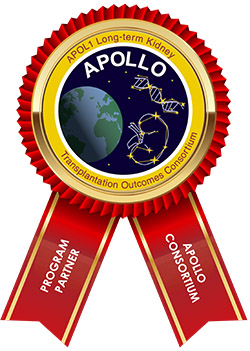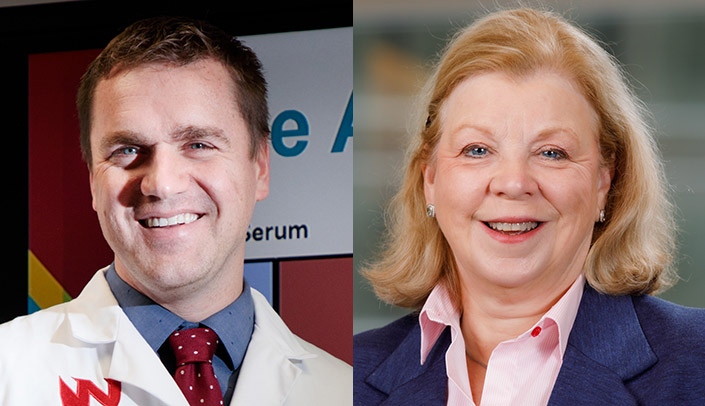UNMC is serving as a key site in a national study that aims to improve outcomes for African American kidney-disease patients, as well as potentially increase the pool of available donor kidneys — a chronic area of need.
 |
African Americans are four times more likely than white Americans to develop end stage kidney disease (ESKD), or kidney failure. The reasons are complex, but recent research has identified that one critical factor for this risk is a gene variant, not race (which is a socio-political construct, not a biologic factor).
This latest study, including the Omaha site, is trying to understand the role of this gene variant — apolipoprotein L1 (APOL1) — in kidney transplant outcomes. The National Institutes of Health (NIH) study, made up of 13 clinical consortia and more than 200 transplant centers across the country, is called the APOLLO Network.
"Our nephrology transplant team is proud to be part of the APOL1 Long term Kidney Transplantation Outcomes (APOLLO) Network, a national study supported by the NIH that is working to address racial disparities in transplant outcomes," said Roslyn Mannon, MD, associate chief of research in the UNMC Division of Nephrology and a member of the steering committee for the APOLLO Network.
Investigators are working to "understand the role of the gene in recipients of kidneys from eligible deceased donors," said Omaha principal investigator Scott Westphal, MD, assistant professor of nephrology at UNMC. They also are working with living kidney donors who are African American, to see if this gene variant impacts risk of kidney disease following donation.
Currently, potential deceased donor kidneys for transplant may be scored at higher-risk of graft failure, simply because their donors are Black, the APOLLO researchers said. But, a greater understanding of the role played by APOL1 could define the risk better and result in more potential donor kidneys — and more transplant recipients.
Dr. Westphal reports a high degree of engagement at the Omaha site. "Everyone who is eligible and interested is enrolled," he said.
"We are very excited about the widespread interest in the African American community in this study," Dr. Mannon said. Dr. Mannon continues to oversee the site at the University of Alabama-Birmingham, her former employer.
Dr. Mannon praised the role of the study’s Community Advisory Council, volunteers with direct or family experience with kidney transplants, who serve as a bridge between the African American community and the project. She also noted that Organ Procurement Organizations (across the country, including Live On Nebraska, have been invaluable.
APOL1, found most often in people with recent African ancestry, probably was initially a defense mechanism — it helps resist the parasite that causes African sleeping sickness. But, scientists later discovered the same gene that was an armor for one disease was an Achilles heel for another.
The APOLLO Network hopes to reach full enrollment by mid-summer, and continue to gather follow up data.
